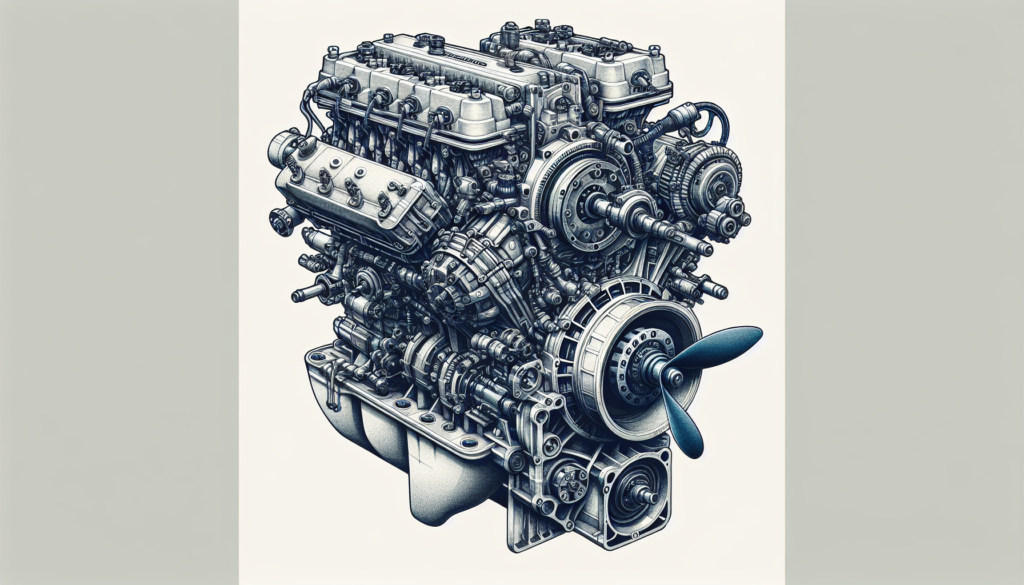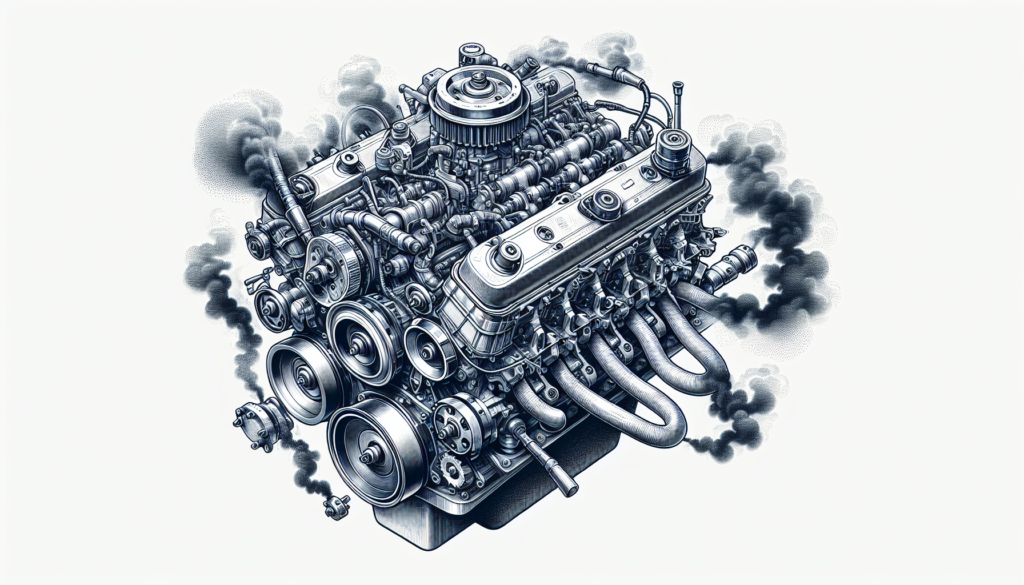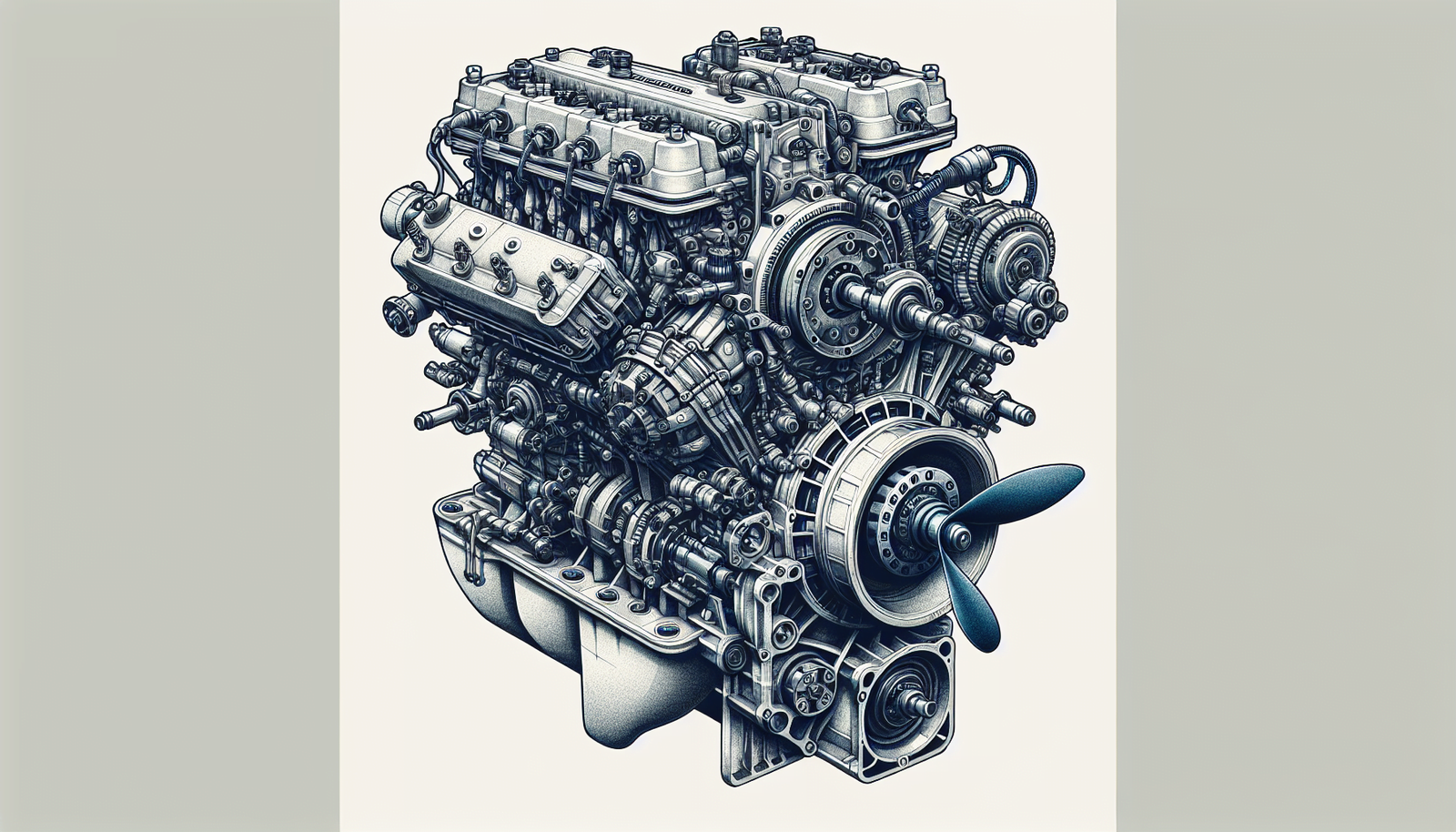Stepping on to your boat, you might have noticed an unusual shake, a strange hum, or even a sporadic jerk. “Why Is My Boat Engine Vibrating Excessively?” Is a question that might have crossed your mind. This jarring sensation isn’t just uncomfortable; it’s a warning sign that your boat engine is crying for help. Your journey across the open waves should be smooth, not shaky and grating. This article offers insights into the potential culprits of excessive boat engine vibration and provides solutions to restore that smooth ride you miss. Buckle up, friend, it’s time to calm those waters!

Understanding Boat Engine Vibration
Experiencing a slight vibration from your boat engine is pretty normal. Just like your car engine, it’s a constant working machine with many moving parts creating a balanced but noticeable hum.
Normal versus excessive vibration
Ordinarily, a pleasant boat trip is accompanied by a low hum of the engine – that’s your engine’s natural vibration. This vibration is an interplay of mechanical elements, like pistons and crankshafts working together. However, if the vibration becomes more pronounced, veering into a harsh shake or an unpleasant noise, then it’s likely signaling an issue. That’s when you shift from natural, harmless vibrations to potentially harmful excessive vibrations.
Causes of natural engine vibration
Natural engine vibration is a fallout of several moving parts in the engine, such as the rotating crankshaft or pumping pistons. These elements create a consistent, gentle vibration that’s indicative of a normal, healthy boat engine operation.
When does vibration become a problem
You should start becoming concerned when the vibration level turns disruptive. This could manifest in shaking or movements that you can feel through the boat’s hull or steering wheel or an accompanying roaring or droning sound. Such severe vibrations could be symptomatic of engine parts working incorrectly or mechanical glitches that need immediate attention.
Analyzing Boat Engine Vibration
If you notice an unusual or excessive engine vibration, your first step in addressing the issue is correct identification.
How to identify excessive engine vibration
Excessive engine vibration typically feels unusual or uncomfortable. You may feel an unexpected level of shake in the hull, steering wheel, or deck or hear a marked increase in engine noise.
Testing for excessive vibration
To confirm your suspicion, you can conduct a vibration analysis. This scientific technique uses specialized equipment to measure vibration intensity, enabling you to pinpoint the origin of the issue.
Understanding vibration analysis readings
The goal of a vibration analysis is to identify irregular vibration patterns. The readings should indicate whether the vibration you’re feeling is due to a genuine issue or just standard operation vibration. By understanding these readings, you can determine any deviations from the normal range.
Issues with Engine Mounts
Engine mounts play a key role in regulating vibration and ensuring stable engine operation.
Roles of engine mounts
Engine mounts act as a buffer between the engine and the boat, absorbing a large share of the normal engine vibrations, preventing them from being transferred to the boat’s frame. They also help to hold the engine in place and maintain alignment.
Symptoms of faulty engine mounts
Cracked or broken mounts can cause excessive vibration and increased engine noise. You may also notice that your engine has shifted position if the mounts are not performing correctly.
Effects of faulty engine mounts on boat performance
Faulty engine mounts can make your journey uncomfortable due to excessive vibration and noise. Worse still, they can lead to engine damage if the engine moves too much or goes out of alignment.
Effects of Engine Misalignment
Engine alignment plays a crucial role in reducing vibration.
How engine alignment can cause excessive vibration
If your engine isn’t correctly aligned with the rest of your boat, the propeller shaft might not rotate smoothly, turning every rotation into a jerking, shaking motion – causing excessive vibration.
Determining if engine misalignment is the issue
Physical inspection, vibration analysis, and alignment checks can help you determine if engine misalignment is causing your problem.
Methods to fix engine misalignment
Fixing engine misalignment involves adjusting engine mounts or couplings to ensure the engine and propeller shaft align properly. It’s a precision task, often best handled by a professional.

Influence of Propeller Damage
The propeller is important for the smooth running of your boat. Any damage to it could result in excess vibration.
Types of propeller damage
Propeller damage could include bends, cracks, or dents. Even minor damage can lead to an imbalance, causing vibration.
Determining if propeller damage is causing vibration
Visible inspection of your propeller can reveal if there’s any damage. You may feel a strong vibration when you throttle up, and this could mean your propeller is the culprit.
Repairing and maintaining boat propellers
Fixing a propeller can be as simple as straightening a bent blade or as complex as replacing the entire propeller. Regular inspection and maintenance can minimize the odds of propeller damage.
Impact of Gearbox Problems
Your boat’s gearbox can also instigate excessive vibration.
How gearbox problems instigate excessive vibration
A malfunctioning gearbox can interrupt smooth power transition, causing the engine to shudder or jerk.
Identifying gearbox issues
Trouble shifting gears, abnormal noises, or physical inspection can help identify gearbox issues.
Repairing common gearbox problems
Repairing a gearbox issue might involve replacing damaged parts or servicing the entire gearbox. It’s generally advisable to engage a professional for this task.
Role of Shaft Issues
The condition of your boat’s shaft also impacts vibration levels.
Identifying potential shaft issues
Signs of shaft problems can include visible damage to the shaft, unusual noises, or vibrations when the engine is running.
Effects of shaft problems on boat engine vibration
A bent or unbalanced shaft can generate unnatural and harmful vibrations throughout the boat.
Reducing vibration by addressing shaft issues
Strategies potentially include fixing the bend, balancing the shaft, or replacing it altogether, helping to minimize any induced vibrations.
Impact of Loose Equipment or Fittings
Even loose equipment or fittings can contribute to excessive vibration.
Determining if loose equipment or fittings are the problem
Visual checks for loose fittings or monitoring unusual vibrations can help you identify such issues.
Impact of loose fittings on boat engine vibration
Loose equipment or fittings could rattle against other components, producing unnecessary vibration.
Fixing loose equipment or fittings
Simple tightening of screws, bolts, or fittings can often mitigate the issues caused by loose equipment.
Influence of Engine Imbalances
Engine imbalance is another common cause of excess vibration.
Understanding engine imbalance
This happens when rotating parts within your engine have uneven weight distribution. This imbalance can lead to increased vibration.
How engine imbalance contributes to vibration
The uneven weight distribution creates an inconsistent rotation in engine parts, causing increased vibration.
Addressing and preventing engine imbalances
Balancing engine components, periodically checking for wear and tear, and careful engine maintenance can address and avert engine imbalances.
Seeking Professional Assistance
While you can handle some of these checks and minor fixes, certain situations call for professional aid.
When to call in professionals
If you’re unable to identify the source of the excessive vibration or if it still persists after you’ve addressed all suspected areas, it would be prudent to seek professional assistance.
Benefits of professional diagnosis and repair
A professional can accurately diagnose and fix your issue, restoring your boat engine’s performance. They bring in experience, technical skill, and advanced tools.
Potential costs and considerations
While professional services are worthwhile, they come at a cost. But remember, it’s a worthy investment to protect your engine from potential damage and ensure a comfortable, smooth sailing experience for you.

